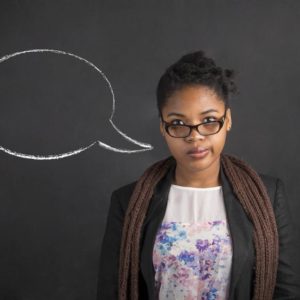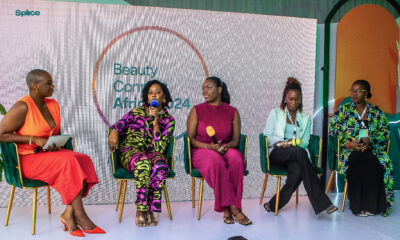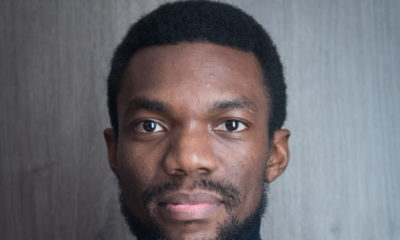Features
Funmto Ogunbanwo: Advancing Mental Health Awareness in Nigeria
 Mental Health.
Mental Health.
Two simple words that elicit a variety of emotions and reactions. To some, those two words bring about positive emotions; to others, they bring about negative emotions. In Nigeria, the words have historically been met by mostly negative reactions. Some see Mental Health as something that only affects the white man. Others simply think of the psychiatry ward, or as we fondly call it in Lagos, Yaba left.
So, what exactly is Mental Health? According to the WHO, mental health is a state of well-being in which individuals are able to realize their potential, cope with the normal life stressors, work productively and fruitfully while impacting their community. Simply put, mental health is the health of our emotional and psychological state. Not so intimidating, right? So why then do we as Nigerians have a negative outlook on mental health? Here are some ideas.
First, we don’t fully understand the meaning of mental health. We have gone along with the stereotype surrounding mental health without stopping to examine the roots and origin of the stereotype. If you don’t truly understand the meaning of something, there is a possibility that you may not appreciate and acknowledge its importance. I don’t recall hearing anything about mental health or its importance from teachers, parents, or even healthcare professionals growing up. The less you talk about something, the more intimidating it is, giving room for fear to thrive.
Second, we as Nigerians tend to bottle up our emotions or simply ignore them. These messages are often sent to us from a young age. We tell our boys to “man up” whereas girls have the liberty to express emotions. Both are dangerous and equally affect an individual’s mental health. As he grows, a man may not know how to express his emotions, even to his significant other. The woman on the other hand, may not know how to navigate and manage her emotions. Emotions make us human, so we need to accept that they are normal and it is okay to feel them.
Our failure to truly understand the meaning of mental health could imply that we have created our own meanings for it. With a culture that is deeply religious, we have tied our definition of mental illness to demon possession, witchcraft, or personal wrong doings. Not only are these messages highly dangerous, they also imply that mental illness is only of the devil.
Moving forward, how can we dispel the negative stereotypes and advance mental health in Nigeria? We need to talk about mental health more and normalize it. If you have ever endured Lagos traffic, then you have experienced an everyday life stressor that could affect your mental health. We need to acknowledge the fact that life happenings sometimes get in the way of our mental health. Never underestimate the power of conversations. Like Linda Lambert says, “one good conversation can shift the direction of change forever”. It is time to start talking about mental health.
Talking about mental health not only normalizes it, it also allows those who may be struggling with their mental health or mental illnesses to feel safe enough to acknowledge their struggles, and speak up and ask for help. Nigerians are some of the most resilient and strong people I know, but even superman takes off his cape. It is okay to not feel strong. It is okay to feel anxious. It is okay to feel down. There is so much strength in acknowledging those feelings and deciding to reach out for help.
In addition to talking to about mental health, we need to become more aware of the messages we are sending about mental health. When a friend or loved one tells you they are feeling down or anxious about a situation, try to hear them out before asking “have you prayed about it?” It takes a lot of courage to be open and vulnerable with someone. The response that follows can either encourage or prevent vulnerability. While the question “have you prayed about it?” is often said with sincere intentions, there is something so powerful about simply listening and being there for a person, and this does not undermine the power of prayer. Listening and being there for a person communicates the message “I hear you, I am here for you, I empathize with you.”
Renowned social psychologist Brene Brown says “If we can share our story with someone who responds with empathy and understanding, shame can’t survive.”
Just for kicks and giggles let’s play a myth busting game!
Myth 1: Mental illness is the work of the devil.
Wrong.
Mental illness has absolutely nothing to do with the devil. Mental illnesses are often because of biochemical imbalances, genetic factors, environmental stresses or a combination of these. It’s not every day blame the devil.
Myth 2: Black people are not affected by mental health or mental illnesses.
False.
Even though we have a “black man blood”, like our friend Divine Oduduru said, mental illness does not discriminate based on ethnicity, age. gender, income level, etc.
Myth 3: If you’re feeling anxious or down, you are just overly sensitive.
This is not true.
It is normal to feel anxious or down in certain situations. It just shows you’re a perfectly fine human capable of feeling emotions.
So, Nigeria, it is time for us to start having those difficult conversations on mental health. It’s time for us to become aware of our responses. It is time for us to normalize emotions. It is time for change.
I believe in us; we can do it. Naija no dey carry last.
Photo Credit: Dreamstime





















